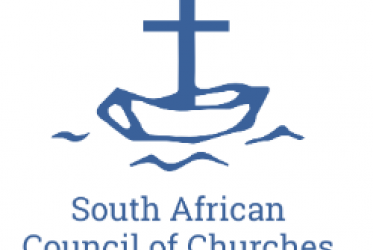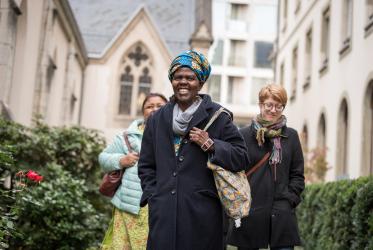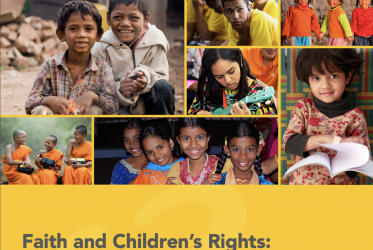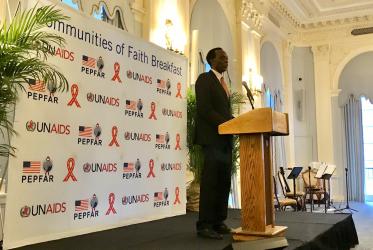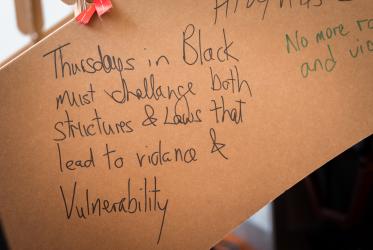Displaying 121 - 140 of 607
Freedom of religion rooted in justice
06 March 2020
South Africans draw hope despite recurring challenges
16 December 2019
New study illuminates children’s rights, hopes and burdens
19 November 2019
The cry of the Papuans in Indonesia
14 November 2019
Churches in southern Africa stand against violence, xenophobia
10 October 2019
WCC gravely concerned for West Papua
25 September 2019
When you strike the women, you strike a rock
18 September 2019
Dr Saïd Ailabouni: God is on the side of rejected, oppressed, occupied
12 September 2019



